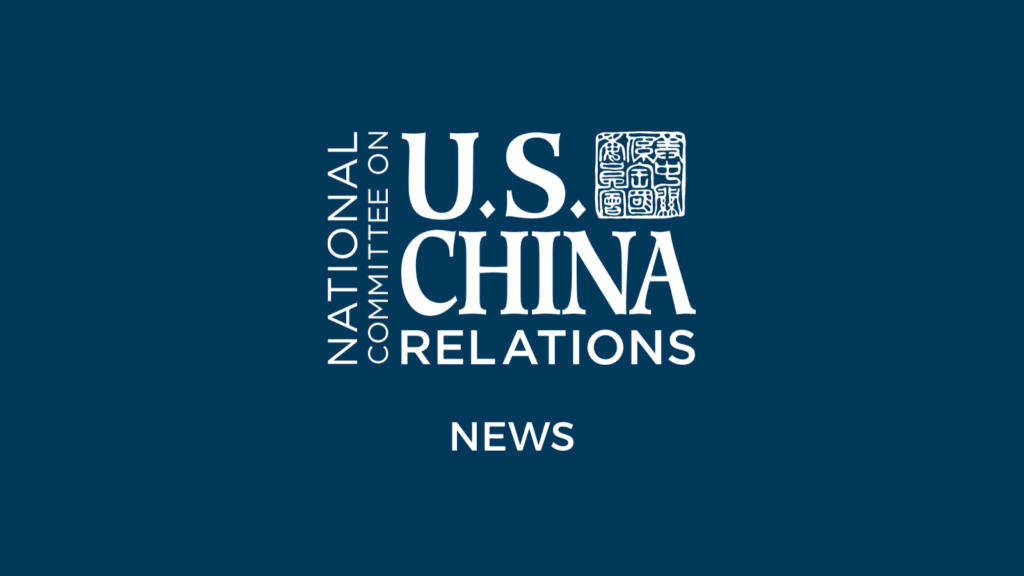Former U.S. Treasury Secretary Jacob Lew
Chair, National Committee on U.S.-China Relations
Remarks for an Event Commemorating the Fiftieth Anniversary of the Shanghai Communiqué
Conducted by the China-US People’s Friendship Association, the Chinese People’s Association for Friendship with Foreign Countries, the Chinese People’s Institute of Foreign Affairs, and the Shanghai Municipal People’s Government
February 27, 2022
This fiftieth anniversary of the historic Shanghai Communiqué is a reminder of the power of leaders to chart a new course for their countries and the world. President Nixon and Chairman Mao had very different world views. Secretary Kissinger and Premier Zhou Enlai, at Shanghai and after, held firmly to different views on national, economic and global issues. But then, as now, the United States and China also shared common interests. In 1972, this motivated leaders to tackle hard issues, and the Shanghai Communiqué ended decades of conflict and launched a half century of engagement.
We meet at a difficult moment in the world and in the U.S.-China relationship. Fifty years ago, the U.S.S.R. was a common threat that brought us together. Today, Russian aggression threatens to drive us further apart. This is a moment when nations of the world that respect the sovereignty of national borders are joining together in condemning Russia’s illegal attack on Ukraine. China must decide where to stand, and understand that bilateral relations with the U.S. will only become more strained in the absence of a clear choice to stand with international law.
Not since that historic agreement fifty years ago have the differences between our nations been more stark—from human rights and national boundaries to economics and global standards for the future. But the world today is different than it was in 1972. Driven by deep engagement in the global economy, China saw an unprecedented reduction in poverty and catapulted to become, with the United States, one of the two largest economies in the world. In 2022 the world looks to the United States and China to sustain economic growth and anchor stability. And how we exercise that responsibility will shape the futures of our two nations and the broader global community.
We continue to share many common interests, and on transnational challenges like climate change, global health and the threat of global instability from state and non-state actors, the United States and China must work together. As we compete in the integrated global economy our goal should be rules of the road that ensure fairness in competition, not outright hostility. As risks grow that strategic concerns may spill over, intentionally or accidentally, into outright conflict, we need channels for bilateral communication to avoid potentially catastrophic misunderstandings. And as new technologies transform economic and strategic boundaries, we must work as leaders in the global community to develop and implement standards that protect our respective economic and security interests. The case for continued engagement remains powerful, and it is dangerous to embrace decoupling as either the new reality or objective. At the same time, our respective security concerns demand that boundaries be well defined and respected, and engagement that is deliberate and transparent.
In recent years, a view has developed across party lines in the United States that China’s policies are increasingly in conflict with U.S. interests and values. At the same time, messages from China to the United States reflect a view that the U.S. no longer offers a sound foundation for domestic or global stability. Sadly, the tone in both directions needs some work if we are to get back to the kind of constructive engagement that is needed to pursue our national interests as we advance our common interests, while we wrestle with our differences. That means communicating candidly in an atmosphere of mutual respect between our two great nations.
The National Committee on U.S.-China Relations for fifty years has promoted dialogue and people-to-people exchanges. That was key to making progress at a ping pong table fifty years ago, and remains critical today. The National Committee on U.S.-China Relations will continue to promote dialogue and exchanges among all sectors of society.
This fiftieth anniversary of the Shanghai Communiqué is a reminder of the power of leaders to use diplomacy and engagement to narrow differences and avoid outright conflict. At this moment of deep tension around the world, today’s leaders must rise to the same challenge to chart a better future.
Thank you.
